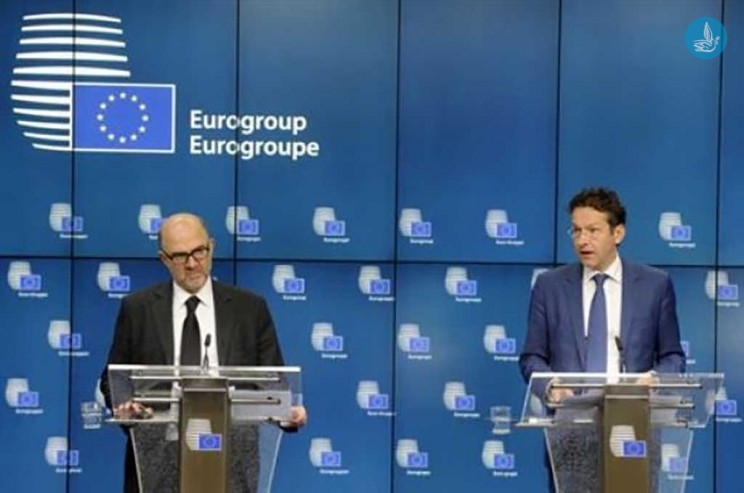The sustainability of Greece’s public debt is going to be the main topic of discussion amongst the Eurozone’s finance ministers, at the extraordinary Eurogroup meeting which will be held on Monday, May 9th in Brussels. It is the first time that Greece’s debt is in the Eurogroup’s discussion agenda.
According to the Eurogroup’s official agenda that was released yesterday, the summit is convened to discuss the state of play of Greece’s macroeconomic adjustment programme. “The Eurogroup will meet with a view to reaching an agreement on the first review of Greece’s economic adjustment programme” reads the announcement, while “discussions will cover a comprehensive package of policy reforms as well as the sustainability of Greece’s public debt. Both elements need to be in place in order to finalize the first review of the programme and release further financial support to Greece” the agenda notes.
Meanwhile, the President of the European Council, Donald Tusk, called on the Eurozone’s finance ministers to reach an agreement “very soon” on the Greek issue. “During these challenging times, both in terms of geopolitics and economics, we need to make sure that Europe contributes to stability rather than global instability” Tusk said on Tuesday. “We should do all in our power to dispel uncertainties” he added.
French President Francois Holland expressed hope for a deal at next Monday’s summit. “France wishes for an agreement to be reached on Monday with regard to Greece” government spokesman Stephan Le Foll said. “This is a message I insist on. The President has said it very clearly” Le Foll explained, adding that “the situation of Greece…can be a point of fragility for the Eurozone, so we must retain the line of the Eurozone, which is stability and return to growth”.
On Wednesday, officials said hopes for an agreement at Monday’s summit were low, but at the same time, the European Commission excluded any possibility for a “crisis scenario” like that which Greece faced in 2015, expressing moderate optimism that a deal be likely reached “in the next few weeks.” According to a Reuters report, citing an unnamed source, further work is needed for both sides to reach an agreement by May 24th, when a regular Eurogroup is scheduled. The source noted that another extraordinary session may take place on the 18th of May, provided the necessary progress has been achieved.

At the heart of the disagreement lies the insistence of the IMF that Greece should legislate in advance contingency measures of 3,6bn euros, in case the target for a 3,5% budget primary surplus by 2018 is missed. The Greek side has counter-proposed a mechanism that will introduce cuts in state spending and raise taxes accordingly if such a scenario occurs, insisting that it cannot legislate contingency measures on top of a package of 5,4mn euros of reforms that have already been decided as part of the bailout agreement. “We have made it clear that for procedural and substantive reasons, this cannot be done,” Deputy Defense Minister Dimitris Vitsas said.
Meanwhile, during yesterday’s Euro Working Group teleconference, alternate Finance Minister of Greece Giorgos Houliarakis, further analyzed Greece’s proposal in relation to the activation of an automatic system for cutting state spending if budget targets are missed, adding that according to Eurostat’s latest data, the state of Greece’s public finances is much better than the IMF’s grim forecasts.
The Euro Working Group is expected to convene again on Monday, a few hours before the Eurogroup summit. According to government sources, several European officials back Greece’s counterproposal, and despite the IMF’s demands, they expect further progress to be achieved in the coming days with the bailout program review to be completed in reasonable time.
Read also: Gov’t Pushes for Debt Relief, Less Austerity, as Improved Greek Finances Defy Projections
TAGS: CRISIS | GOVERNMENT & POLITICS | MODERN GREEK HISTORY | RECOVERY














